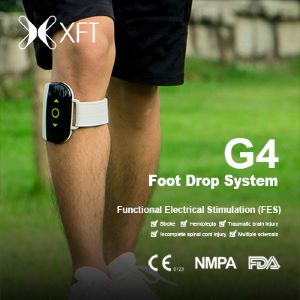Measurement
Further Development of the Measure of Evidence-Informed Professional Thinking
Wednesday, November 1, 2023
10:00 AM - 10:06 AM
Location: Station 6

Angela Benfield, PhD, OTR (she/her/hers)
Assistant Professor
UT Health San Antonio
San Antonio, Texas, United States
Presenting Author(s)
Research
Objectives: The measure of Evidence-informed Professional Thinking (EIPT) measures the habits of engagement in clinical reasoning, evidence-based practice (EBP), and measuring outcomes. It consists of two scales: critical clinical reasoning (CCR) (item separation 8.49, 0.99 reliability and person separation of 2.93, 0.90 reliability) and Evidence-informed Practice habits (EIP habits) (item separation of 6.19, 0.97 reliability and person separation of 2.97, .90 reliability). The purpose of this study was to expand the range of items to include difficult activities of EBP and clinical reasoning.
Design: Allied health professionals, including advance practice clinicians, were recruited via an announcement with a link to the survey on professional list servs and emails with the announcement to clinical educators and post-professional training programs across the United States. The survey included demographic, the measure of EIPT, and new items. Rasch analysis was used to identify and calibrate the new items that fit the criteria for equal-interval measurement.
Results: All of the trial items fit one of the scales. The CCR scale (23 items) has an item separation of 9.47, 0.99 reliability and person separation of 2.95, 0.90 reliability and EIP scale (23 items) has an item separation of 11.77, 0.99 item reliability and person separation of 3.10, 0.91 reliability. The two scales are highly correlated (Pearson’s r = 0.775, p<0.001).
Conclusions: Habits of engaging in evidence-informed professional thinking and EBP can be measured in terms of two correlated probabilistically equal-interval dimensions: Critical Clinical Reasoning and Evidence-informed Practice habits. The measure of EIPT could be used in research on the habits of engaging in clinical reasoning and EBP activities and measuring improved practice habits after knowledge translation interventions.
Objectives: The measure of Evidence-informed Professional Thinking (EIPT) measures the habits of engagement in clinical reasoning, evidence-based practice (EBP), and measuring outcomes. It consists of two scales: critical clinical reasoning (CCR) (item separation 8.49, 0.99 reliability and person separation of 2.93, 0.90 reliability) and Evidence-informed Practice habits (EIP habits) (item separation of 6.19, 0.97 reliability and person separation of 2.97, .90 reliability). The purpose of this study was to expand the range of items to include difficult activities of EBP and clinical reasoning.
Design: Allied health professionals, including advance practice clinicians, were recruited via an announcement with a link to the survey on professional list servs and emails with the announcement to clinical educators and post-professional training programs across the United States. The survey included demographic, the measure of EIPT, and new items. Rasch analysis was used to identify and calibrate the new items that fit the criteria for equal-interval measurement.
Results: All of the trial items fit one of the scales. The CCR scale (23 items) has an item separation of 9.47, 0.99 reliability and person separation of 2.95, 0.90 reliability and EIP scale (23 items) has an item separation of 11.77, 0.99 item reliability and person separation of 3.10, 0.91 reliability. The two scales are highly correlated (Pearson’s r = 0.775, p<0.001).
Conclusions: Habits of engaging in evidence-informed professional thinking and EBP can be measured in terms of two correlated probabilistically equal-interval dimensions: Critical Clinical Reasoning and Evidence-informed Practice habits. The measure of EIPT could be used in research on the habits of engaging in clinical reasoning and EBP activities and measuring improved practice habits after knowledge translation interventions.
Learning Objectives:
- describe the benefits of using habits of engaging in EBP as an outcome tool for EBP implementation studies.
- Describe the psychometric properties of the measure of Evidence-informed professional reasoning
- Describe how to interpret the keyform in order to develop targeted professional development activities

.jpg)
